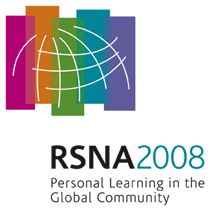
Abstract Archives of the RSNA, 2008
LL-NR1276-L
A 3D Interactive Atlas of Cerebral Arteries from 7T
Education Exhibits
Presented on December 3, 2008
 Certificate of Merit
Certificate of Merit
Wieslaw Lucjan Nowinski PhD, Presenter: Nothing to Disclose
Arumugam Thirunavuukarasuu, Abstract Co-Author: Nothing to Disclose
Ihar Volkau PhD, Abstract Co-Author: Nothing to Disclose
Yevgen Marchenko MS, Abstract Co-Author: Nothing to Disclose
Michael Vinzenz Knopp MD, PhD, Abstract Co-Author: Nothing to Disclose
Val Murray Runge MD, Abstract Co-Author: Research grant, Bracco Group
Research grant, Bayer AG
Fiftarina Puspitasari, Abstract Co-Author: Nothing to Disclose
Aminah Bivi Abu Bakar, Abstract Co-Author: Nothing to Disclose
Natalia Nowinska, Abstract Co-Author: Nothing to Disclose
et al, Abstract Co-Author: Nothing to Disclose
7T scanning enables more detailed depiction of anatomy and vasculature comparing to 1.5T and 3T acquisitions. To enhance our understanding of 3D vasculature and its correlation to anatomy, we construct an interactive, electronic atlas with a three-dimensional (3D) model of cerebral arteries from 7T MRI and MRA acquisitions.
A 3D interactive cerebrovascular atlas created from 3T and shown at RSNA 2006 is extended with 7T MRI and MRA scans. The vessels are extracted from 7T MRA and labeled with names. Very small vessels are reconstructed using a dedicated and sophisticated vascular editor. The 3D vascular model is correlated with 7T MRI and MRA scans on the triplanar. Comparison between the 3T and 7T acquisitions and models is done. Tools for manipulation of the 3D vascular model with scan triplanar are developed.
This exhibit: 1) presents an interactive atlas with a detailed, labeled 3D model of cerebral arteries constructed from 7T scans; 2) correlates 3D angiography with 2D neuroanatomy on axial/coronal/sagittal planes; 3) provides real-time manipulation (zoom/rotate/pan) of the vascular model with scan triplanar; 4) compares 7T with 3T scans and vascular models; 5) provides localization and quantification (vessel diameter, coordinates, distances); 6) enhances our understanding of 3D cerebral arteries.
Nowinski, W,
Thirunavuukarasuu, A,
Volkau, I,
Marchenko, Y,
Knopp, M,
Runge, V,
Puspitasari, F,
Abu Bakar, A,
Nowinska, N,
et al, ,
A 3D Interactive Atlas of Cerebral Arteries from 7T. Radiological Society of North America 2008 Scientific Assembly and Annual Meeting, February 18 - February 20, 2008 ,Chicago IL.
http://archive.rsna.org/2008/6019181.html


 Certificate of Merit
Certificate of Merit